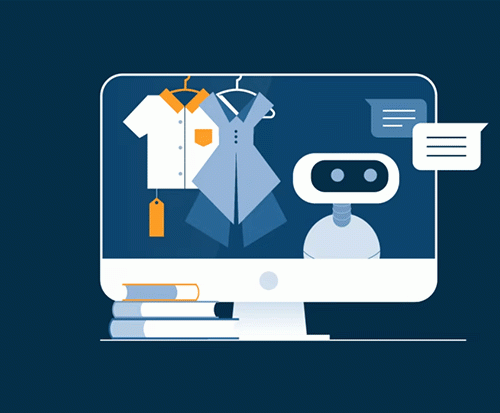Customers rate traditional chatbots vs. ChatGPT assistants
Not all artificial intelligence (AI)-based customer service chatbots are created equal.
According to a recent survey of over 1,000 U.S. consumers and retailer interviews conducted by online marketplace Capterra, 53% of surveyed consumers who have used traditional retail customer support chatbots rate their overall experience as “fair” or “poor.”
Furthermore, more than half (55%) of surveyed traditional chatbot users don’t trust them. And only 17% of surveyed retail chatbot users have used a bot to search for products, and just 7% have used it to receive product recommendations.
However, surveyed respondents have much more favorable views of ChatGPT, a new AI model from research and deployment company Open AI. Using 570 GB of publicly available data on the Internet, ChatGPT interacts with users in a conversational style that mimics human interaction and uses machine learning (ML) to continually refine and improve its responses.
[Read more: ChatGPT is coming – what it means for your enterprise]
For example, 67% of surveyed ChatGPT users feel understood by the bot often or always, compared to 25% of traditional retail chatbot users. Close to six in 10 (56%) respondents who have used ChatGPT for any purpose say they are likely to shop from a brand that offers a similar tool. However, only 11% have used the bot specifically for shopping purposes.
Other interesting findings related to ChatGPT bots include:
- Only 19% of the surveyed ChatGPT users say they “always” or “often” simplify their queries to be understood by the tool.
- Two-thirds (66%) of ChatGPT users say the bot provides recommendations that feel personalized.
- Respondents’ highest-reported use case for ChatGPT—by a wide margin—is “just for fun” (77%).
Survey reveals consumer distrust of ChatGPT
Interestingly, another recent survey reveals general consumer distrust of next-generation AI technology, such as ChatGPT. Data from AI platform InRule reveals:
- 59% of all respondents distrust generative chatbot technology.
- 47% of all respondents prefer humans over chatbots like ChatGPT during customer experience.
- Even as cutting-edge technology like ChatGPT continues to be released to improve experiences, 70% of respondents will still prefer to interact with and keep a human in the loop.
But the InRule survey also shows that younger consumers in general have a more favorable view of customer service automation than older consumers:
- 40% of Gen Z respondents think automation helps yield stronger privacy and security. measures through stricter compliance, compared to 12% of boomer respondents.
- 41% of Gen Z respondents thought automation offers greater personalization, versus 20% of boomer respondents.
- 43% of Gen Z respondents believe automation improves customer support through quicker responses or shorter wait times, while only 28% of boomer respondents believe so.



